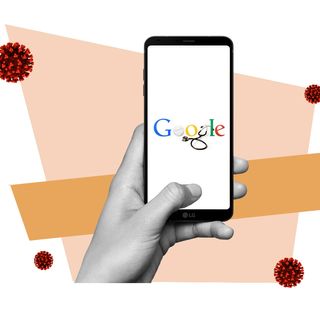Most of us have experienced those pesky, involuntary eye-twitches that start out of nowhere, and make it seem like we’re either having a stroke, or trying to wink at people around us, albeitstrangely.
This mild, uncontrollable quivering of an eyelid is called myokymia, and usually disappears as suddenly and spontaneously as it strikes. Typically affecting the lower eyelid, and occasionally the upper one, myokymia results from excessive consumption of caffeine, high levels of stress and anxiety, fatigue, lack of sleep and dehydration.
The twitching of eyes during important work meetings, office presentations, or job interviews may seem like the absolute awkwardest of times for them to strike. But, because these are stressful events that are often preceded by sleepless nights, and perhaps, many cups of coffee — the likelihood of the random eye-spasms occurring at these junctures is hardly surprising. The condition mostly resolves itself, so medical professionals generally don’t consider it to be a cause for concern.
Related on The Swaddle:
The Various Theories Behind Why We Hiccup
However, there are more serious forms of eye-twitching like blepharospasm, which, strangely, occurs in women more than twice as often as men. Unlike myokymia, blepharospasm is a more forceful closure of the eyelid that sometimes results in functional blindness when the eyes close a little bit more with every subsequent twitch, with the individual gradually losing all control over the eyelid. Although there is no cure for it, botox injections, which paralyze the eyelids, are often used to treat its severity. This condition isn’t common, and is often caused by the usage of or withdrawal from certain medications.
There are a wide spectrum of baseless superstitions surrounding the eye-twitch across countries and continents: the twitching of the right eye is neither a bad omen for women, as Indians believe; nor does the twitching of eyes indicate a distant admirer thinking of the person experiencing twitches in a romantic way, as the Chinese believe; nor does it portend unexpected visitors, as Africans believe; or impending births and deaths in the family, as Hawaiians believe.
So, while the vexatious eye-twitch can lend us the reputation of someone who’s simultaneously trying to flirt with everyone in the room, it is also our body’s way of asking us to stop exerting itself and maybe take a short nap instead.




